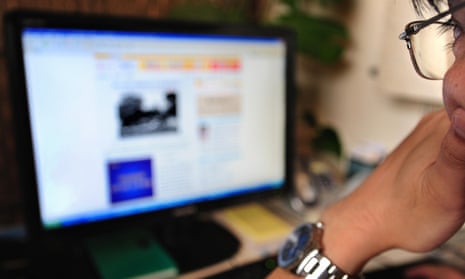A government bill will give authorities the power to block websites that publish videos portraying a range of sexual acts that they believe are not appropriate for British eyes. How did we get here?
By thinking of the children. The 2015 Conservative manifesto promised to “stop children’s exposure to harmful sexualised content online”, a widely supported measure that is to be fulfilled by the government’s digital economy bill, currently on its way through the Commons.
The bill requires pornographic websites to implement strong age-verification controls that force users to prove they are over 18. But at some point during the bill’s drafting, a sentence was slipped in that gives a regulator powers to act against sites “making prohibited material available on the internet to persons in the United Kingdom” – a clause that has somehow escaped any debate.
This might all have been inconsequential, since ministers had held back from including website blocking in the original bill, and most pornographic material online is hosted overseas, outside British jurisdiction. However, after stern criticism at committee stage, and the threat of a Tory backbench rebellion, the government announced last Saturday that it would back an amendment to add website-blocking to the bill.
Who is going to enforce the restrictions?
In October the British Board of Film Classification, a non-profit organisation that already classifies films for cinema and DVD release, accepted an invitation from the Department for Culture, Media and Sport to become the UK’s age-verification regulator. At the time, the DCMS said the BBFC would be responsible only for the first stages of the regulatory framework, and enforcement would be carried out by another regulator.
But the situation has since become more confused after the government’s statement of support for website blocking suggested that it would be the BBFC itself that would direct ISPs to “block access to rogue sites”.
What will be banned?
The BBFC has told the Guardian it would be required to check if websites contain the kind of pornographic content it would normally refuse to classify. In practice, that means that R18 – the BBFC’s most liberal classification, applied to pornographic works that can be shown in licensed cinemas or sold in licensed sex shops only, to adults only – will be the benchmark for what is acceptable.
There is no definitive list of acts proscribed by the R18 classification. Although it is based on the Crown Prosecution Service’s guidelines for the Obscene Publications Act, in practice it draws tighter lines. Most notoriously, the BBFC refuses to pass videos including female ejaculation that touches sexual partners, believing it to be equivalent to urination during sex, which is considered obscene.
Other acts that are verboten, but have come to be considered fairly mainstream, include the insertion of whole hands into anuses or vaginas (known as “fisting”), scenes showing participants so comprehensively bound and gagged that they cannot indicate a withdrawal of consent, and face-sitting – which is exactly what it sounds like. Sex during menstruation would also be banned, since it breaks rules about bleeding. Of course, the rules also restrict a great deal of content that many people would find horrifying.
What are the objections?
Critics say that it is not the government’s place to police what kinds of consenting sex can be watched by adults. Sexual fetishists say they are unfairly targeted by the BBFC’s censorship, which would sweep their particular sexual tastes back into the underground.
There has also been particularly strong kickback from some feminists, who say that BBFC proscriptions on female ejaculation and sex during menstruation discriminate against women by proscribing female bodily functions. Furthermore, bondage, domination and sadomasochism often find expression as female domination and, since similar laws were brought in to cover British-based sites in 2014, female pornographers have often found themselves facing legal action.
It is also claimed that the rules are not consistent. Consumption of male ejaculate is fine, but not female, and although acts implying strangulation or choking are banned, videos showing women gagging on erect penises are apparently OK. Some critics say many of the rules constitute an attack on female sexuality.
Others say this goes beyond pornography, and that it is the first example of any liberal democratic country creating an internet censor. The fear is what such a framework could go on to be used for.
What precedent is there for this?
The UK – and in fact the English-speaking world – has a history of drawing its rules of censorship much more tightly than continental Europe. James Joyce’s Ulysses had to be first published in Paris then smuggled into Britain. When Radclyffe Hall’s lesbian romance The Well of Loneliness was published in 1928, James Dougal, the editor of the Sunday Express, led a successful campaign for its suppression, saying: “I would rather put a phial of prussic acid in the hands of a healthy boy or girl than this novel.”
Despite gradual liberalisation over the course of the 20th century, helped when the Obscene Publications Act finally allowed a defence of artistic merit against charges of obscenity, by the 1990s Britain still had far more stringent censorship than countries such as Germany or Denmark. All that changed with the internet, which allowed information to be streamed straight into people’s homes from around the world without restriction. Until now.









Comments (…)
Sign in or create your Guardian account to join the discussion